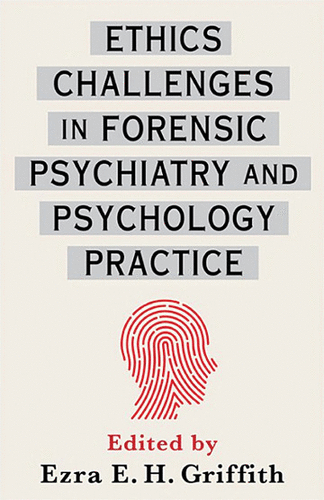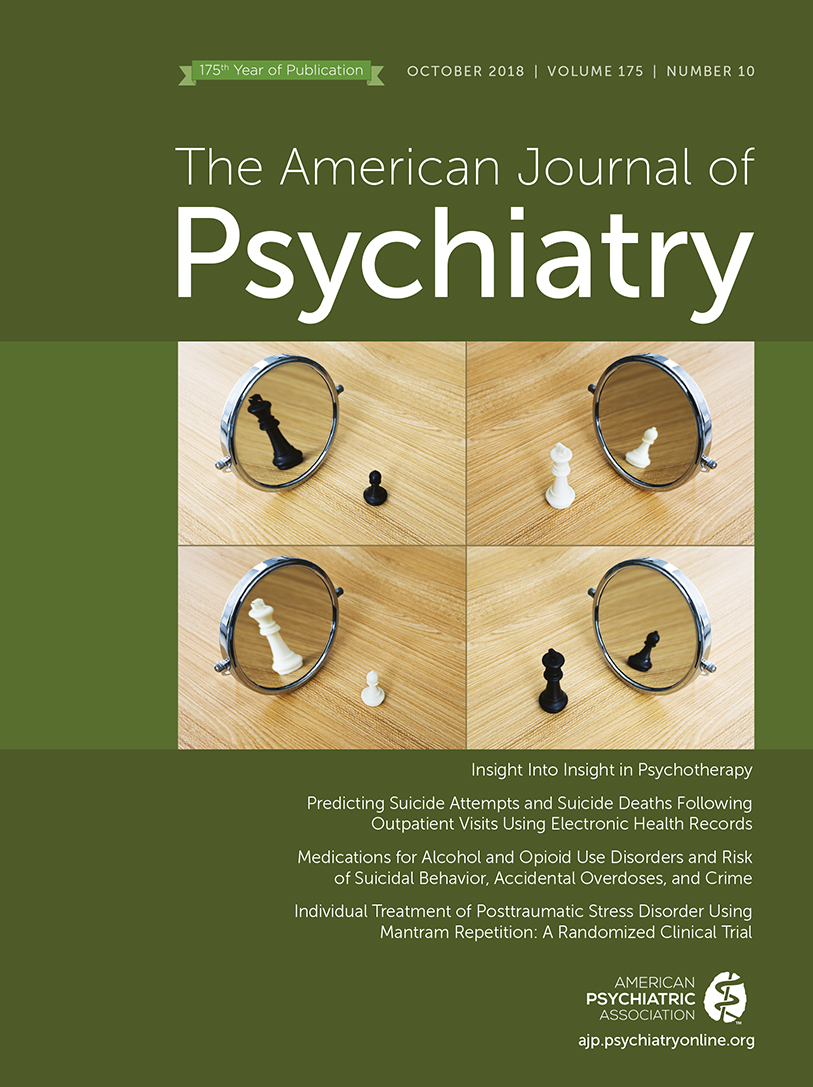Ethics Challenges in Forensic Psychiatry and Psychology Practice

The field of ethics involves systematizing, defending, and recommending concepts of right and wrong behavior. The practice of forensic psychiatry and psychology has been described at times as an ethical minefield, as competing obligations at the interface of the justice and health care systems produce challenges regarding what is the “right” behavior and call for an ethical framework for guiding practice in this arena. In this book, Dr. Ezra Griffith, professor emeritus of psychiatry and African American studies, and deputy chair for diversity and organizational ethics at Yale University, has put together a collection of essays written by an esteemed group of contributors, many of whom are leading thinkers within the field of forensic ethics. This accessible book covers a surprisingly diverse range of topics, including work with children, the incarcerated, sex offenders, and individuals requiring involuntary treatment, as well as dilemmas involving the use of neuroscience and psychological testing, just to name a few. Ethical dilemmas involve reasoning about what “should” be done by the good doctor, and deciding what “good” means in the context of the medical relationship. This important contribution to the field of forensic ethics offers a broad discussion of ethical dilemmas and how best to reason through them when practicing within the forensic realm.
Part 1 of the book focuses on how one approaches solutions to ethics problems in forensic practice. This section begins with a nice description of the various competing ethical theories pertinent to forensic psychiatry and psychology that one might use when confronted with these dilemmas. Theories such as principlism, casuistry, narrative, the ethics of caring, and normative ethics are described, and then the authors present their concept of dialectical principlism, which is their method of laying out, prioritizing, and balancing conflicting ethics considerations to help practitioners act most ethically. This section of the book goes on to describe ethical challenges produced by issues such as feminism, practicing within a context of limited resources, dealing with role conflicts, and working with concepts of objectivity and competence in forensic assessments.
Part 2 of the book shifts its focus to ethics in major areas of forensic practice, including topics such as minors’ autonomy, ethics dilemmas in correctional institutions, involuntary outpatient commitment, and the use of neuroscience in forensic contexts. The authors of these chapters provide practical examples of real-world issues that forensic practitioners face within these contexts. For instance, within the correctional context, the authors discuss the very relevant issues of confidentiality, consent, and competence that affect the correctional practitioner. The authors of this chapter suggest that correctional psychiatrists and psychologists may require their own separate code of ethics because of secondary duties owed to the criminal justice system that must be balanced against the duty to the patient in treatment. The chapter on neuroscience provides a very relevant discussion about how the use of brain imaging might raise new ethical issues as forensic clinicians attempt to draw conclusions between brain and behavior while being mindful about not going “beyond the data” with regard to those conclusions.
Part 3 takes the book into areas of more specific ethics problems in forensic practice. Each of these well-written chapters provides the forensic practitioner with a nuanced look into these special areas of practice. Topics in this section include the use of psychological testing, the ethics of mandated video recording of forensic evaluations, and the ethical challenges of assessing and treating challenging patient populations such as children, sex offenders, asylum petitioners, and Guantanamo detainees. Additional topics touch on the use of the Internet, interacting with the media, and the ethics dilemmas encountered in violence risk assessment.
This book contains 20 interesting and well-written chapters discussing a variety of topics that any forensic practitioner would find useful. Each of these chapters could be a stand-alone monograph, given the specialized nature of each. Much of forensic psychiatry is practiced by general psychiatrists who do not have specific forensic training and who could make great use of this book to familiarize themselves with the problem areas likely to be encountered in their work.
The authors of these chapters provide real-world ethical dilemmas and attempt to aid those practicing in this field to resolve these often complex ethical challenges. The thrust of this book is to help guide practitioners’ thinking with regard to these dilemmas, without necessarily providing specific solutions. As perfectly stated on the inside of the book jacket, this book “provides a roadmap for specialists in these evolving fields to recognize dilemmas through reflection and consideration, thoughtfully articulate the problems, and create solutions.”



